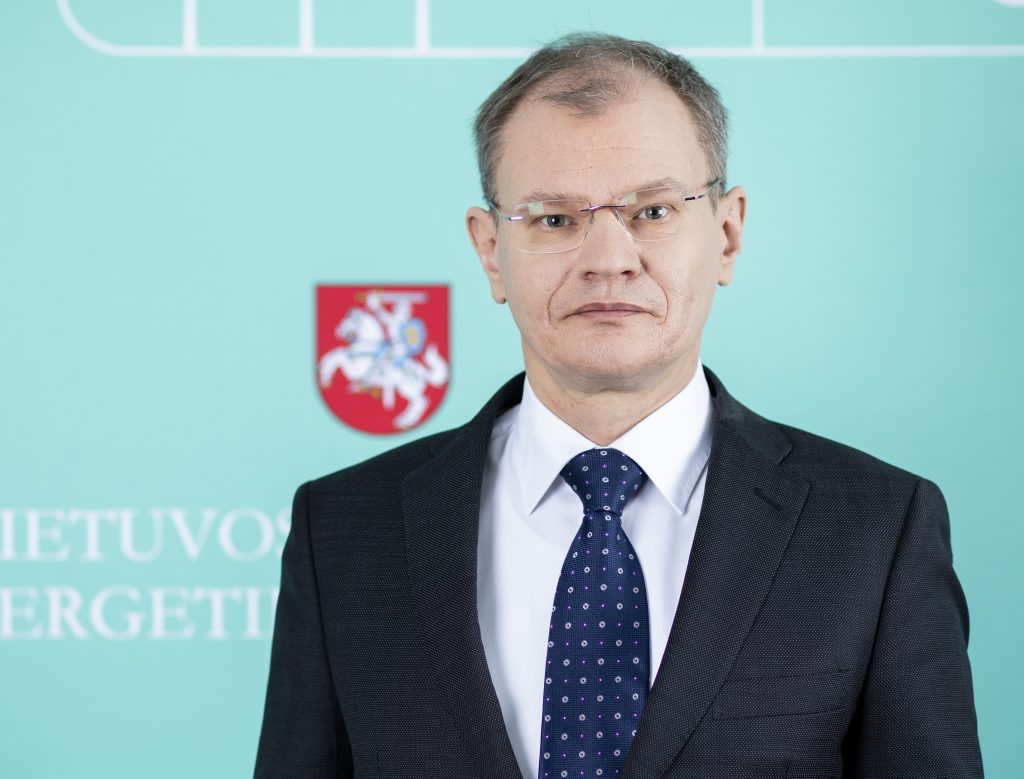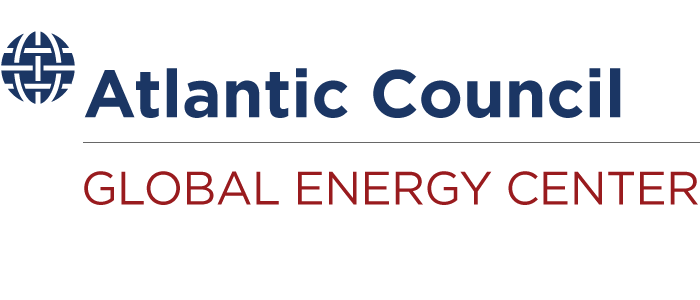Event recap
On November 16, 2021, the Atlantic Council Global Energy Center hosted a virtual fireside chat at the Lithuanian Embassy in Washington with Albinas Zananavičius, vice-minister for energy, to discuss Lithuania’s planned synchronization with the European grid by 2025, the resulting disconnection from Russia’s grid, and his country’s energy plans for the next decade. The event was moderated by Randolph Bell, senior director and Richard Morningstar chair for global energy security at the Global Energy Center, and opening remarks were delivered by Amb. Richard Morningstar, founding chairman of the Global Energy Center and former US ambassador to the European Union (EU).
Ambassador Morningstar highlighted three recent events demonstrating the prescience of the Baltic states’ electricity reorientation: COP26 and renewed efforts towards decarbonization; the energy crisis and Russia’s role therewithin; and mounting tensions with Belarus. Vice-Minister Zananavičius expanded on the foresight of preparing interconnections with Poland and Sweden in preparation for possible energy shortages. Nevertheless, he noted, these events offer a wake-up call for Lithuania to redouble its efforts to complete synchronization by 2025’s end.
Zananavičius also expounded the benefits of synchronizing with Europe’s grid. Connecting with Europe would provide stability and predictability, he argued, signaling to the private sector that Lithuania’s power market is secure and governed by open and liberal European rules. Zananavičius underlined the importance of completing synchronization on time for the country’s climate objectives, particularly Lithuania’s ambitious onshore and offshore wind strategy. He added that the European Union has been helpful in strengthening the grid to enhance the integration of renewables.
On Belarus’ nuclear power plant in Ostrovets, Zananavičius argued Minsk has miscalculated. It is obvious, Zananavičius stated, that Ostrovets was built for exports to the European Union, the only route to which goes through Lithuania. Zananavičius emphasized that Lithuania has worked to ensure that electricity from Ostrovets will not be imported; if that were to happen, it could affect Lithuania’s synchronization and clean energy development plans. As Lithuania moves towards greater self-reliance on renewables, the dumping of cheap electricity from Ostrovets would undercut renewable generation in Lithuania. “For us, renewables are a political question,” stressed Zananavičius. “It’s about our independence.”
Zananavičius also spoke highly of energy cooperation with Poland. In addition to the electricity interconnectors between the two countries, Zananavičius sees the future gas interconnection with Poland as a potential gamechanger. Lithuania’s liquified natural gas terminal already provides two-thirds of Lithuania’s gas needs, despite the terminal’s capacity utilization rate of only 50 percent, which will increase rapidly as Lithuania begins to send supply to Poland. Zananavičius also touched on Poland’s nuclear plans, underscoring his support for nuclear energy in the hands of trusted partners. He highlighted the greater transparency and shared values within the fellow EU member state, especially compared to Belarus, expressing confidence that Polish nuclear regulation will be robust.
In a question-and-answer segment, nuclear energy featured prominently. Zananavičius pointed out that despite plans to build new nuclear capacity in the Baltics following the closure of Lithuania’s Ignalina plant in 2009, a referendum had foreclosed that possibility. Zananavičius surmised this may have been for the better; although such a plant would have produced a great amount of energy for Lithuania, it would also have made interconnection with Europe and the entire synchronization project unnecessary. Zananavičius also discussed the future of small modular reactors (SMRs) in the region, noting that Lithuania is well-placed to develop them courtesy of its excellent water sources, nuclear expertise, seasoned regulators, and experience dealing with waste. He mentioned that this is purely theoretical at this point, however.
Zananavičius ended by commending Lithuania’s strong partnership with the United States, whom he lauded as a guarantor of Lithuanian national and energy security and as a model and partner for climate adaptation of critical infrastructure. Zananavičius also celebrated the two countries’ collaboration on cybersecurity, a vital concern in the Baltic states The energy transition poses a challenge to Lithuania’s cybersecurity as distributed generation gains greater importance. To that end, Lithuania hopes to employ technologies solely from trusted partners. In closing, Zananavičius reiterated the connection between energy and national security, saying, “It’s much better to invest in a sustainable future than to reap short-term benefits.”
Jordan Bekenstein is a Fall 2021 Young Global Professional at the Atlantic Council Global Energy Center.
Conversation with Albinas Zananavičius, Vice-Minister of Energy of the Republic of Lithuania

Albinas Zananavičius became the vice minister for energy of Lithuania on December 23, 2020.
He was most recently the vice minister of foreign affairs working on EU policies and foreign trade. There, he also oversaw economic and energy security policy.
Other postings during his 25-year diplomatic career include assignments in Helsinki and Geneva (WTO). From 2014-2017, he was deputy chief of mission at the Lithuanian Permanent Representation to the EU. In the Ministry of Foreign Affairs, Mr. Zananavičius served as head of the Foreign Trade Policy Division and director of external economic relations.
Vice Minister Zananavičius obtained his M.A. in Economics at Vilnius University. He speaks English, French and Russian.
Opening remarks by
Moderated by
To join this hybrid event in person, please contact Atlantic Council Deputy Director for Flagship Convenings and Global Engagement, Ms. Olga Khakova, at okhakova@atlanticcouncil.org.

The Global Energy Center promotes energy security by working alongside government, industry, civil society, and public stakeholders to devise pragmatic solutions to the geopolitical, sustainability, and economic challenges of the changing global energy landscape.

